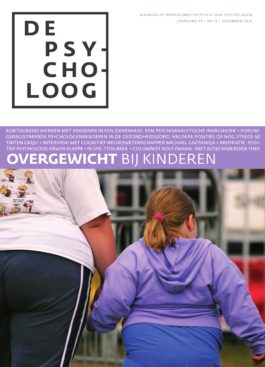In de kinderpsychologische zorg in een algemeen ziekenhuis heeft het cognitief-gedragstherapeutische kader momenteel een belangrijke plaats. Zeker de kortdurende behandelvormen zijn klachtgericht en veelal gedragstherapeutisch. Wij willen daar vraagtekens bij zetten en de diversiteit van het behandelaanbod in een ziekenhuissetting verruimen. Met name de actuele ontwikkelingen in het psychoanalytisch kader bieden nieuwe mogelijkheden voor kortdurende therapeutische begeleiding. In de zorg voor jonge kinderen door zogeheten Infantcentra vanuit de ggz, ook wel ‘Infant Mental Health-centra’ genoemd, is het psychoanalytisch denken opgenomen. Dit geldt veel minder voor de algemene pediatrische psychologie.
De dominantie van het gedragstherapeutisch kader hangt samen met de mogelijkheden voor wetenschappelijk onderzoek vanuit dit model. Protocollaire behandelingen zijn makkelijker wetenschappelijk te evalueren dan psychoanalytische psychotherapieën. Lange tijd hebben psychoanalytici wetenschappelijk onderzoek veronachtzaamd. Hier komt de laatste decennia verandering in (zie voor een review over evidence based psychoanalytische kinderpsychotherapie Midgley & Kennedy, 2011)15. Dat effecten van psychologische behandelingen worden onderzocht vanuit een diversiteit aan therapeutische kaders –

